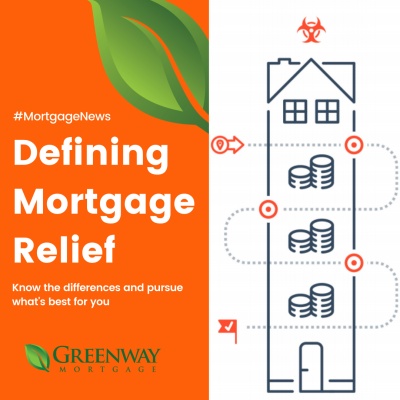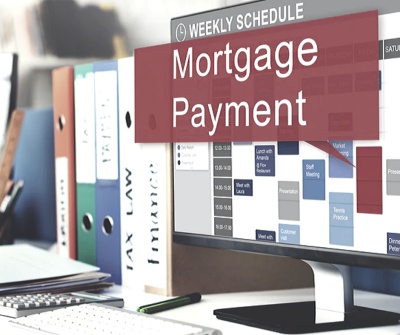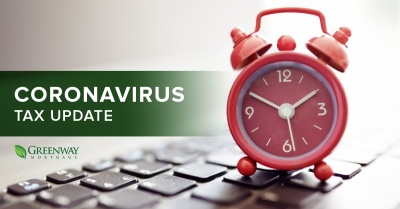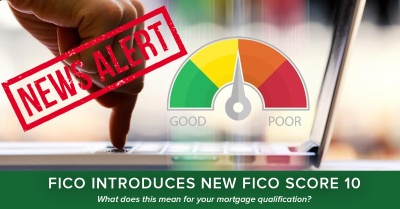
It's important to know the different mortgage relief options so you can make the best choice. Take a look at some of the options here:
If you still have enough income to qualify, accessing equity in your home by refinancing or obtaining a secured credit line may be a good option for lowering your payments, consolidating other debts, and/or creating a cash cushion. A refi will be especially beneficial if current rates are lower than those on your existing financing. Learn the difference between a HELOC and a Cash-Out Refi here.
If you want to discuss your options for a refinance or HELOC, please contact us directly.
To set up the other options listed here, please reach out using the contact information on your monthly loan statement. Document all calls and agreements, then check your monthly statements and credit reports to assure that changes are reported correctly.
We hope this helps you understand the available options. If you have questions, please reach out.
Helpful Resources
- For up-to-date information on the developing situation visit Greenway's Incident Resource Center.
- Mortgage Assistance During COVID-19
- Be On The Lookout for Coronavirus Scammers
- Get in Touch with Erin The Expert here.
- Learn more about Refinancing here
- Refinance Calculator - try now!
Be on The Lookout for Coronavirus Scammers

-
Robocalls: Hang up! Don’t press any numbers.
-
Online offers for vaccinations and home test kits: Ignore these offers. There are no FDA-authorized home test kits for the Coronavirus. You can visit the FDA website to learn more.
-
Text Messages/Emails: Don’t respond to text messages and emails about checks from the government. Anyone who tells you they can get you money now is a scammer.
-
Links from Unknown Sources: Don’t click on links from sources you do not know. This could download viruses onto your computer or device. Before clicking a link or sharing personal information online, stop, pause, and research the company or person. Make sure the anti-malware and anti-virus software on your computer is operating and up to date.
-
Donations: It’s important to do your homework. Don’t let anyone rush you into making a donation. If someone wants a donation in cash, by gift card, or by wiring money, don’t do it. The best way to donate money to help those affected by a crisis is to go directly to the charity’s website. For online resources on donating wisely, you can also visit the Federal Trade Commission (FTC) website.
-
Online Sellers: Know who you’re buying from when purchasing online. Online sellers may claim to have in-demand products, like cleaning, household, and health and medical supposes, when in fact they do not. Check online reviews of any company offering COVID-19 products or supplies. Avoid companies whose customers have complained about not receiving items.
-
Emails: If you receive an email claiming to be from the Centers for Disease Control and Preventions (CDC) or experts saying they have information about the coronavirus be wary. For up-to-date information about the virus, you can visit the CDC’s website here. Double check the actual email address. A government agency’s email address will end in .gov not .com. Even if you do believe an email is legitimate, always navigate to the organization yourself rather than clicking a link within the email.
-
Federal Trade Commission (FTC) Consumer information
-
Centers for Disease Control and Prevention. The CDC website includes the most current information about the Coronavirus.
-
World Health Organization. WHO provides a range of information, including how to protect yourself, travel advice, and answers to common questions.
-
National Institutes of Health. NIH provides updated information and guidance about the coronavirus. It includes information from other government organizations.
-
For more information about scam calls and texts, visit the FCC Consumer Help Center and the FCC Scam Glossary. You can also file a complaint about such scams at fcc.gov/complaints.
Mortgage Assistance During COVID-19

The first priority of Greenway is the health and safety of our team members, clients and communities. If you are facing financial struggles related to COVID-19 that are impacting your ability to make your mortgage payments, please see the information below regarding new mortgage relief options:
Overview of The Coronavirus Stimulus Bill
-
Anyone facing a financial hardship from coronavirus shall be given a forbearance on a federally backed mortgage loan of up to 60 days, which can be extended for four periods of 30 days each.
-
The legislation says that services of federally back mortgage loans may not being in the foreclosure process for 60 days from March 18, 2020.
-
The bill also does not allow fees, penalties or additional interest to be charged as a result of delayed payments. It includes similar protections for those with multifamily federal mortgage loans, allowing them to receive a 30-day forbearance and up to two 30-day extensions.
Here’s What You Should Know:
Credit Reporting: Servicers must not report to the credit agencies a Borrower who is on an active forbearance, repayment, or trial period plan due to COVID-19 related hardship.
Forbearance Plans (a temporary pause of your mortgage payments): Servicers may approve forbearance plans for all Borrowers who have COVID-19 related hardship, regardless of property type.
Loan Modifications: Servicers must conduct Modifications on Borrowers impacted by COVID-19 related hardship as long as the Borrower was current as of the date of the national emergency declaration on March 13th, 2020.
Foreclosure: Servicers must suspend all foreclosure sales for the next 60 days. Note this does not apply to properties that are vacant or abandoned.
The Forbearance Process Explained
.png)
Continue to Make Your Mortgage Payments
Forbearance does not mean your responsibility to pay is waived. It is not a deferment. This is one of the most misunderstood parts of the process. At the end of the three months (or whatever number of payments is granted by the servicer), you must pay that month's payment, plus what is owed. This is usually due in one lump sum, or possibly extra payments over time.
Contact Your Servicer
If you’re concerned about making your mortgage payments due to job loss or reduction in hours, please reach out directly to your servicer ( the lender you make a payment to every month) to get more details on the forbearance policy and to find out how you can negotiate payment terms that will meet your individual needs.
Once the time frame is up, your servicer will work to reevaluate your situation to determine the best course of action. If you’re ready to resume payment, they will move toward payment options.
Tax Day Deadline: Important Changes

What Does This Mean For You?
-
Americans who choose to push back their payments with not be penalized, nor will they be charged interest on late payments.
-
If you’re likely to receive a refund and are able to submit your return on time, don’t wait to file. The funds that you receive could be useful in the coming weeks and months, especially if COVID-19 has impacted your financial well-being.
>>Tip: To make the process fast and safe as possible, the IRS advises taxpayers to utilize e-filings and select direct deposit as their preferred method for receiving refunds.
Why You Shouldn’t Wait to File Your Taxes
-
Unless you owe a lot of money, it’s inadvisable to wait as you will have to pay them eventually.
-
Penalties and interest will begin to accrue on any remaining unpaid balances as of July 16, 2020. You will automatically avoid interest and penalties on the taxes paid by July 15, 2020.
What If You Can’t File by July 15, 2020?
-
For those who can't file by the July 15, 2020 deadline, the IRS reminds individual taxpayers that everyone is eligible to request an extension to file their return (October 15, 2020).
-
This October extension is not new. It’s available to tax filers every year, but it doesn’t extend the deadline for tax payments.
Bottom Line:
FICO Launches New Credit Scoring Model (FICO 10): What does this mean for your mortgage qualification?

-
Try to pay off your credit card balances early, even before their monthly due date.
-
If you are already a homeowner, stay on top of your monthly mortgage payments.
-
Reduce your spending where possible
.png)
After the two factors mentioned above, the length of your credit history, your mix of loans and the new accounts you’ve applied for recently, remain important to calculating your credit score.
Checking Your Credit Score Online
When consumers go online and receive their scores’ they must review which scoring model they are receiving. Consumers could get a Vantage Score, a whole different scoring model. They most likely will get a FICO® model score but must verify the version. The difference in score versions provided can have a consumer find a variance of 30-90+ points from lender accessed scores. Keep in mind, Credit Karma uses Vantage, which can render significantly difference scores than used for mortgage qualification.
Online scores are good to gauge where your scores sit, but only a lender can provide the true FICO® lending score used for decision making. Scores are obtained when the credit bureau information from Experian, Equifax and Transunion is evaluated by the FICO® model score. This is a snapshot at the time the credit report is pulled. It is a lender guideline to use the middle score. For example, a 650 – 690 and 675 score would result in the middle score being a 675.
Bottom Line
Instead of getting hung up on which model a lender may use, it’s important to practice fundamental good habits such as paying bills on time and keeping your debt low. If you’re thinking about buying a home, get to know your credit score better and how to improve it! Learn more here.
Give Greenway Mortgage a call to discuss your credit score in detail. There are many different ways we can help. 908.489.4658.
Important Resources
- Contact Erin The Expert
- Visit Erin The Expert Online here to learn more
- Download Erin's Mobile Mortgage App
- Understand the Credit Landscape
- [Blog] Part 1: Credit Reports & Credit Scores
- [Blog] Part 2: Misunderstandings & Realities of Credit Scoring
- [Blog] Part 3: Your Credit Profile (Report + Score) - How Erin The Expert Can Help You






.png)
.png)
.png)